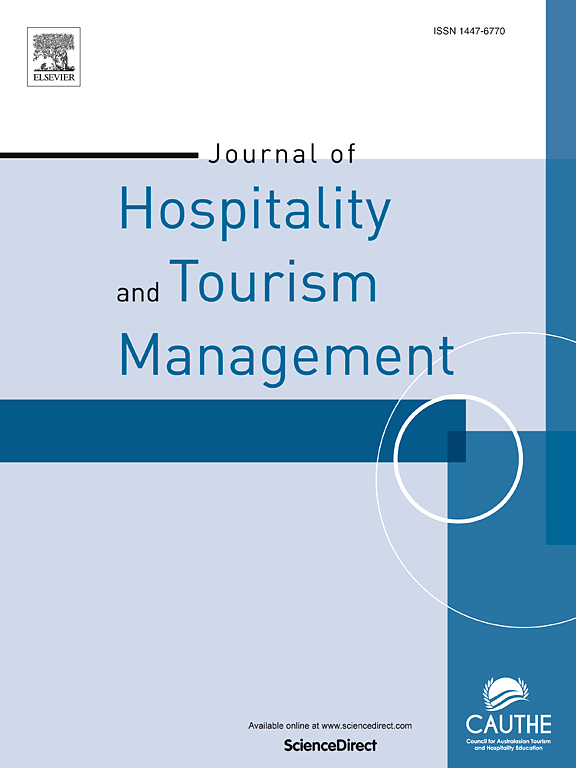Avatar influence: How form realism and message appeal shape Generation Z's travel intentions
IF 7.8
1区 管理学
Q1 HOSPITALITY, LEISURE, SPORT & TOURISM
引用次数: 0
Abstract
Although avatars have gained popularity in virtual reality marketing, research on their influence on Generation Z consumers' travel intentions remains limited. Drawing on the Construal Level Theory and the Elaboration Likelihood Model, this study examined the congruent effects of avatar form realism and message appeal on Generation Z's travel intentions through three experimental scenarios. The findings indicate that high-form realism avatars with rational appeal and low-form realism avatars with emotional appeal significantly boost travel intentions. These effects are mediated by believability and affect intensity and are more pronounced among individuals with low behavioral realism expectations. This study enhances our understanding of avatar-mediated persuasion in tourism marketing by linking core avatar attributes to consumer decision-making processes. These insights enable us to leverage the visual and verbal components of avatars to promote destinations that attract young travelers.
化身影响:形式现实性和信息吸引力如何塑造Z世代的旅行意图
尽管虚拟形象在虚拟现实营销中越来越受欢迎,但关于其对Z世代消费者旅游意向影响的研究仍然有限。本研究运用解释水平理论和精化可能性模型,通过三种实验场景,考察了虚拟形象形式现实性和信息吸引力对Z世代旅行意愿的一致性影响。研究结果表明,具有理性吸引力的高形式现实主义虚拟形象和具有情感吸引力的低形式现实主义虚拟形象显著提高了旅游意愿。这些影响受可信度和影响强度的调节,在行为现实主义期望值低的个体中更为明显。本研究通过将核心形象属性与消费者决策过程联系起来,增强了我们对旅游营销中形象中介说服的理解。这些见解使我们能够利用虚拟形象的视觉和语言成分来推广吸引年轻旅行者的目的地。
本文章由计算机程序翻译,如有差异,请以英文原文为准。
求助全文
约1分钟内获得全文
求助全文
来源期刊
CiteScore
13.30
自引率
8.40%
发文量
177
审稿时长
45 days
期刊介绍:
Journal Name: Journal of Hospitality and Tourism Management
Affiliation: Official journal of CAUTHE (Council for Australasian Tourism and Hospitality Education Inc.)
Scope:
Broad range of topics including:
Tourism and travel management
Leisure and recreation studies
Emerging field of event management
Content:
Contains both theoretical and applied research papers
Encourages submission of results of collaborative research between academia and industry.

 求助内容:
求助内容: 应助结果提醒方式:
应助结果提醒方式:


